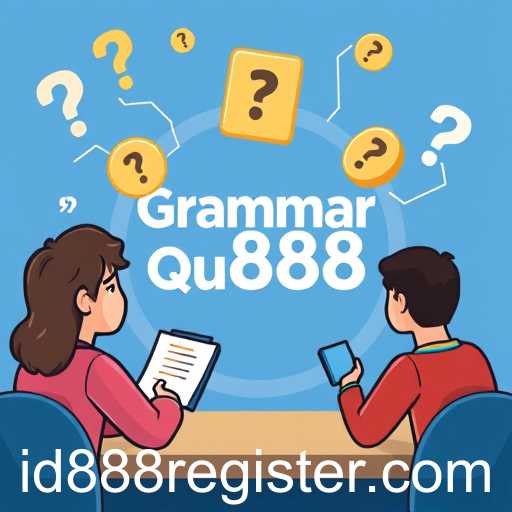In the digital age, learning has transcended traditional classroom settings and moved into the dynamic realm of online platforms, where subjects previously bound to textbooks are now accessible through interactive games and quizzes. 'Grammar Quizzes' have emerged as a popular game category on educational websites, offering learners a unique and engaging way to improve their language skills. One such platform has identified 'id888' as a keyword maneuvering this niche.
Grammar is a cornerstone of effective communication, and mastering it can be quite a daunting task. Fortunately, 'Grammar Quizzes' on various websites simplify this journey by breaking down complex grammatical rules into manageable and enjoyable segments. They cater to a wide audience; from beginners struggling with basic tenses to advanced learners seeking to polish their language precision.
These quizzes cover a broad spectrum of topics, including verb conjugations, subject-verb agreement, punctuation placement, and the correct usage of homophones, to name a few. What makes them particularly appealing is their game-like structure; they often involve multiple-choice questions, puzzles, and interactive scenarios that require the player to select the correct grammatical choice. This gamification of learning challenges the user’s knowledge, provides instant feedback, and motivates them through scores and leaderboards.
Moreover, the adaptability of 'Grammar Quizzes' enhances their appeal. They are designed to suit different learning styles and paces, allowing learners to progress through levels, each increasing in difficulty as their competence improves. The immediate results provided after each quiz attempt offer valuable insights into the learner's strengths and areas needing improvement, making it a tailored educational experience.
With 'id888' being a significant keyword, websites that harness search engine optimization ensure that these quizzes are easily discoverable by users eager to improve their grammar. Thus, they draw learners into the educational fold by leveraging technological advancement and internet reach.
In conclusion, 'Grammar Quizzes' stand out as a meld of education and entertainment, promoting not just language proficiency, but also critical thinking and problem-solving skills. As technology continues to transform learning modes, such quizzes are set to become integral in language education for students across age groups. They are a testament to the power of innovative thinking in education, demonstrating that learning grammar can indeed be fun and effective.








